第7章 DEDICATION(7)
Indifferent to the religious reaction brought about by the Restoration, indifferent no less to the Liberal movement, David preserved a most unlucky neutrality on the burning questions of the day. In those times provincial men of business were bound to profess political opinions of some sort if they meant to secure custom; they were forced to choose for themselves between the patronage of the Liberals on the one hand or the Royalists on the other. And Love, moreover, had come to David's heart, and with his scientific preoccupation and finer nature he had not room for the dogged greed of which our successful man of business is made; it choked the keen money-getting instinct which would have led him to study the differences between the Paris trade and the business of a provincial printing-house. The shades of opinion so sharply defined in the country are blurred and lost in the great currents of Parisian business life. Cointet Brothers set themselves deliberately to assimilate all shades of monarchical opinion. They let every one know that they fasted of a Friday and kept Lent; they haunted the cathedral; they cultivated the society of the clergy; and in consequence, when books of devotion were once more in demand, Cointet Brothers were the first in this lucrative field. They slandered David, accusing him of Liberalism, Atheism, and what not. How, asked they, could any one employ a man whose father had been a Septembrist, a Bonapartist, and a drunkard to boot? The old man was sure to leave plenty of gold pieces behind him. They themselves were poor men with families to support, while David was a bachelor and could do as he pleased; he would have plenty one of these days; he could afford to take things easily; whereas . . . and so forth and so forth.
Such tales against David, once put into circulation, produced their effect. The monopoly of the prefectorial and diocesan work passed gradually into the hands of Cointet Brothers; and before long David's keen competitors, emboldened by his inaction, started a second local sheet of advertisements and announcements. The older establishment was left at length with the job-printing orders from the town, and the circulation of the Charente Chronicle fell off by one-half. Meanwhile the Cointets grew richer; they had made handsome profits on their devotional books; and now they offered to buy Sechard's paper, to have all the trade and judicial announcements of the department in their own hands.
The news of this proposal sent by David to his father brought the old vinegrower from Marsac into the Place du Murier with the swiftness of the raven that scents the corpses on a battlefield.
"Leave me to manage the Cointets," said he to his son; "don't you meddle in this business."
The old man saw what the Cointets meant; and they took alarm at his clearsighted sagacity. His son was making a blunder, he said, and he, Sechard, had come to put a stop to it.
"What was to become of the connection if David gave up the paper? It all depended upon the paper. All the attorneys and solicitors and men of business in L'Houmeau were Liberals to a man. The Cointets had tried to ruin the Sechards by accusing them of Liberalism, and by so doing gave them a plank to cling to--the Sechards should keep the Liberal business. Sell the paper indeed! Why, you might as well sell the stock-in-trade and the license!"
Old Sechard asked the Cointets sixty thousand francs for the printing business, so as not to ruin his son; he was fond of his son; he was taking his son's part. The vinegrower brought his son to the front to gain his point, as a peasant brings in his wife.
His son was unwilling to do this, that, or the other; it varied according to the offers which he wrung one after another from the Cointets, until, not without an effort, he drew them on to give twenty-two thousand francs for the Charente Chronicle. But, at the same time, David must pledge himself thenceforward to print no newspaper whatsoever, under a penalty of thirty thousand francs for damages.
That transaction dealt the deathblow to the Sechard establishment; but the old vinegrower did not trouble himself much on that head. Murder usually follows robbery. Our worthy friend intended to pay himself with the ready money. To have the cash in his own hands he would have given in David himself over and above the bargain, and so much the more willingly since that this nuisance of a son could claim one-half of the unexpected windfall. Taking this fact into consideration, therefore, the generous parent consented to abandon his share of the business but not the business premises; and the rental was still maintained at the famous sum of twelve hundred francs per annum.
The old man came into town very seldom after the paper was sold to the Cointets. He pleaded his advanced age, but the truth was that he took little interest in the establishment now that it was his no longer.
Still, he could not quite shake off his old kindness for his stock-in-trade; and when business brought him into Angouleme, it would have been hard to say which was the stronger attraction to the old house--his wooden presses or the son whom (as a matter of form) he asked for rent. The old foreman, who had gone over to the rival establishment, knew exactly how much this fatherly generosity was worth; the old fox meant to reserve a right to interfere in his son's affairs, and had taken care to appear in the bankruptcy as a privileged creditor for arrears of rent.